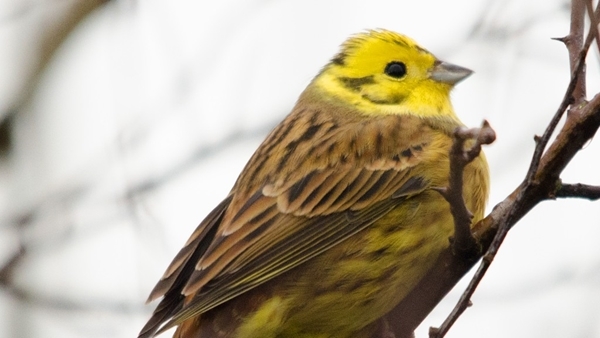
By Henrietta Appleton, GWCT Policy Officer (England)
Wild bird populations continue to decline as demonstrated by Government statistics released on 12th November. We have used the graphs for breeding farmland, woodland, water and wetland and upland birds generated by these statistics many times to emphasise the need for a change in approach to conservation.
In a speech at a House of Lords reception to celebrate 75 years of National Parks, Natural England (NE) Chairman Tony Juniper also recognised that we need to move from nature conservation to nature recovery. Marian Spain, NE CEO, reinforced this by emphasising the need to do things differently.
So why the ‘Not the Nine O’clock News’ quote above?
As members will know the GWCT has been emphasising the importance of learning from the research-based evidence we as an organisation have collated over the last 90 years.
This work has emphasised that effective species recovery is based on 3 principles, namely: habitat provision, food (including supplementary feeding) and, for species which show population levels of decline due to poor survival rates of their young, protection from predation pressure.
Each site and species are unique and therefore the relative proportions of these elements will change – as they will by season. These three principles have been shown to be effective conservation measures for a range of upland, lowland and woodland fauna.
Currently the Environmental Land Management scheme (ELMS) focusses on habitat provision; evidence from our species recovery projects is that this is not enough to encourage population growth.
We have been promoting this recipe for species recovery to policymakers for over a decade, only to see the “business as usual” approach of habitat alone continuing as adopting the GWCT model requires some difficult decisions; or perhaps even more concerningly, and without adequate evidence, the concept of “Rewilding” offered up as the ultimate solution.
Species management is justified where it is proven, through rigorous scientific research, to support desired outcomes (the prevention of localised extinctions, for example) and where its adoption does not impact on the sustainability of the predator population.
It must also be monitored and proportionate and undertaken by trained ‘professionals’ using tools tested against international humane trapping and welfare standards.
I am therefore “absolutely livid” that against the background of the continuing decline in our wild birds, evidenced measures available to reverse that decline are not being adopted. Time is running out.